Service honors 'statesman of science' Robert Richardson
By Anne Ju
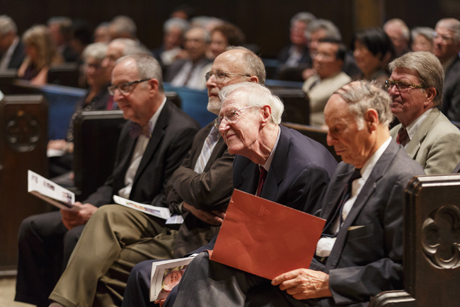
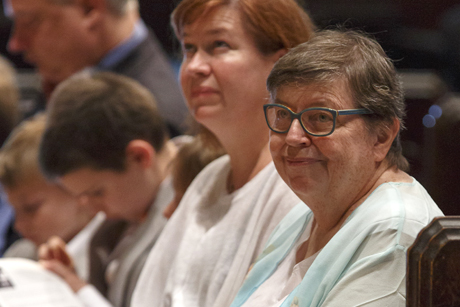
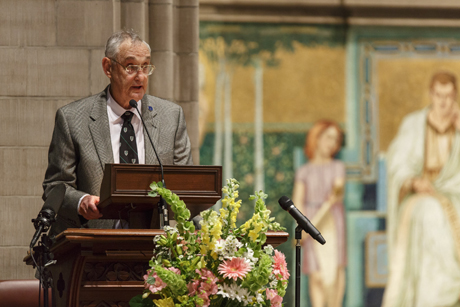
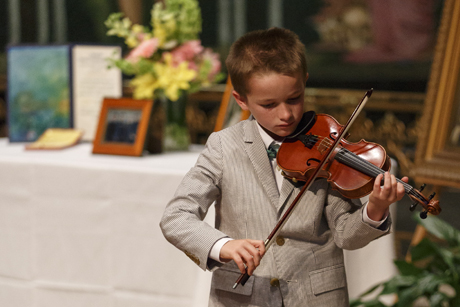
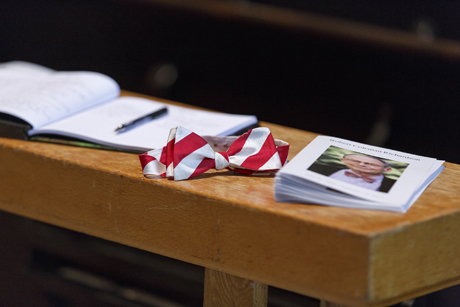
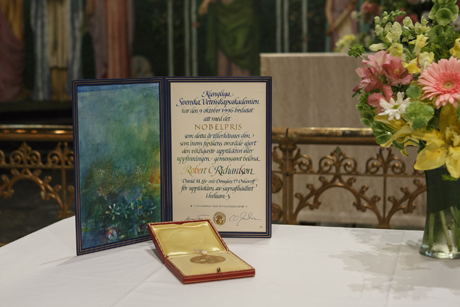
At Cornell, Robert C. Richardson was best known as a Nobel laureate, an influential physicist and as the university’s first vice provost for research. Colleagues, family and friends who gathered in Sage Chapel July 13 remembered Richardson in a deeper way, celebrating the arc of his life as a scientist and administrator and as a devoted husband, father, grandfather and friend.
Richardson, who shared the Nobel Prize in Physics in 1996, died in February at age 75. The memorial service included remarks by two Cornell presidents and by professional colleagues; the sharing of childhood memories by Richardson’s daughter, Jennifer Merlis; and some of Richardson’s favorite pieces of music played or sung by his grandchildren. Richardson was Cornell’s first vice provost for research from 1998-2007, and was also the Floyd R. Newman Professor of Physics.
David Lee, Cornell professor emeritus and professor at Texas A&M University, with whom Richardson shared the Nobel along with Douglas Osheroff, recalled Richardson’s early forays into low-temperature physics. Following Richardson’s 1965 Ph.D. thesis from Duke University under Horst Meyer, he joined with Lee in 1966 as a Cornell research associate in a quest to achieve temperatures below 1 millikelvin in the isotope helium-3 – an "extremely risky venture,” Lee said. Richardson, Lee and Osheroff shared the Nobel for their 1971 discovery that helium-3 can become a superfluid at a temperature just above absolute zero.
“Bob was a scientist with remarkable talents in the laboratory and on national world stages,” Lee said. “He approached problems with vigor and enthusiasm.”
Richardson was also often described as a dedicated teacher of physics, devoted to the teaching of physical principles and an effective mentor to countless students, among them Bill Halperin, a professor at Northwestern University, who became one of Richardson’s first students in 1969.
“Bob nurtured, supported and mentored every one of us,” Halperin said. ”Not only can I say that we are what we are today because of what Bob gave to us, but that those gifts have stayed with us as we pass them along to our students, and they to theirs.”
William Barkley, Richardson’s classmate at Virginia Polytechnic Institute (Virginia Tech), gave warm recollections of nearly 60 years ago – pulling all-nighters playing bridge, serving in the Corps of Cadets, and appreciating the movie “The Blob” – which may or may not have played a role in Richardson’s initial interest in low-temperature physics, Barkley joked.
As much as Richardson was known professionally as a scholar, teacher and national scientific advisor, having served on the National Science Board, he was also deeply tied to family, including his wife of 50 years, Betty Richardson, also a physicist. She and Richardson co-authored, with Alan Giambattista, a seminal physics textbook for non-majors.
Merlis described her father’s love of gardening, sports, music and cross-country skiing, and the ways he lived, long after graduating from Virginia Tech, by the honor code instilled by the Corps of Cadets.
From Richardson’s hand in completing many buildings on campus, to his leadership in science policy, to all the passions that enriched his life, Richardson was a “statesman of science,” said Frank H.T. Rhodes, Cornell president emeritus.
“Bob’s life was so remarkable that even combining everything that’s been said, we could not do justice to all that he achieved,” Rhodes said.
Media Contact
Get Cornell news delivered right to your inbox.
Subscribe